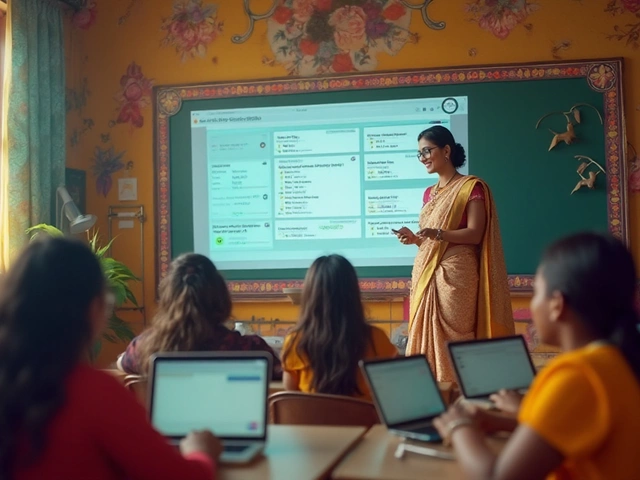Ever felt that weird mix of nerves and hope after sending off a government job application? You wait, and you wait, and just when you think they forgot you ever existed, bam: you get an email inviting you to an interview. But then you wonder, “Is this it—or am I about to enter an Olympic marathon of interviews?” Spoiler: Government jobs are notorious for long and winding hiring journeys. The number of interviews can surprise even the most patient applicants. Sometimes it’s a lightning-fast process. Other times it feels like you’ve been stuck in line at the DMV, and everyone brought lunch.
The Multi-Step Journey: From Application to Interview Gauntlet
Let’s break down the process. Landing a government job means playing by the rules of bureaucracy, which might feel excessive at times but is designed to be fair. The usual process starts with the initial application, and if your resume matches the government's checkboxes (which often rely on automated systems), you get pushed forward to the next step. Don’t get too comfortable though—getting tapped for your first interview is just the warm-up act.
The classic path looks a bit like this:
- Application screening: Automated or manual, depending on the agency. Sometimes hundreds or thousands apply for one spot.
- Written assessment or test: Not always, but common for roles where specific skills matter, like law enforcement, tech, or finance. Some use multiple-choice knowledge tests, situational judgment tests, or essay prompts.
- First-round interview: This is usually a phone or virtual screening. Here, they want to check if you meet basic requirements and if your stories match your resume. Some agencies might skip this or blend it with assessment tests.
- Second-round (panel) interview: This is where it gets real. Three to five people—usually your potential supervisors, HR, and maybe a peer—fire a mix of behavioral and technical questions your way. Governments love panel interviews for fairness, and many roles require at least one. Sometimes, they double up or have you meet multiple panels in one day.
- Final interview or hiring manager meeting: If you’ve made it this far, there’s often a face-to-face (or another virtual) interview with the person who’ll be your boss. This stage can focus on culture fit and get into nitty-gritty role details.
- Additional steps: For high-security or sensitive roles, be ready for background checks, security clearances, medical checks, and even polygraph tests. Those aren’t interviews in the traditional sense, but you’ll get grilled here, too.
If you’re counting—that’s typically two to three interviews, but sometimes four. It’s not unheard of for senior or security positions to push five or six rounds. For example, the U.S. federal government uses a detailed process for classified jobs (think CIA or FBI) that can take a year, with multiple interview panels and in-depth field interviews with your contacts. Meanwhile, a local city clerk job might only require one phone interview followed by a panel chat at City Hall.
You might be curious how this stacks up against the private sector. According to a 2023 Society for Human Resource Management report, private companies average about two interviews per hire—with tech companies going up to five. Government processes are more standardized, slow but designed to avoid bias.
Keep in mind, the steps described here fit federal government jobs in the U.S., but state, county, and city jobs echo a similar process with slight tweaks. Some states, like California, often start with a civil service exam and only the top scores get interview invites at all.
| Job Type | Typical Number of Interviews | Additional Steps |
|---|---|---|
| Federal (entry-level) | 2-3 | Assessment/Panel, Background |
| Federal (security/management) | 3-6 | Polygraph, Security Clearance |
| State | 1-3 | Written Tests, Background |
| Local City/County | 1-2 | Skills Assessment |
It gets weirder for specialized roles. If you’re aiming for government legal, emergency management, or intelligence jobs, don’t be surprised if the finish line keeps moving away. I know someone who went through FOUR rounds for a state division director job, not counting a personality test and a writing simulation. Talk about patience!

Cracking Each Interview: What To Expect & How To Prepare
Knowing how many interviews you might have is one thing. Understanding how to prepare for each stage is where you really gain an edge. Government interviews run like clockwork—they love structure. Here’s what to expect and how to tackle each round:
First-round or screening interviews are usually short. HR or a recruiter checks if you meet the minimums or verifies something from your application. It’s fast and can catch you off guard if you aren’t ready to give sharp, confident answers to “Why do you want this role?” or “Tell us about your experience with [specific tool or regulation].”
Written or knowledge-based assessments are next. Study the job posting and required qualifications—they often pull questions directly from there. For roles tied to compliance, budgets, or public safety, brush up on local codes or recent budgeting policies. States often release old exam questions; check their websites for practice tests.
The panel interview is a beast. Picture a conference room, three-to-five faces, a notepad, and no one cracks a joke. Expect very formal behavioral questions: “Tell us about a time you handled a disagreement at work.” They’re scoring you with rubrics—so be clear, specific, and use the STAR method (Situation, Task, Action, Result). If you blank, don’t panic—take a breath, ask for a moment, and circle back. It’s better to pause than ramble.
One study by the U.S. Office of Personnel Management shared that 88% of federal job offers followed at least one panel interview. These folks love consistent evaluation and documentation, which is why interviews take so much time to schedule (herding busy bureaucrats isn’t easy!).
For a final or department head interview, you can loosen up just a bit. They want to see you as a person, not just a list of competencies. Think about how you fit into their team, what questions you have for them, and maybe even share your vision for the role. But don’t get too casual—it’s still government, and “fit” often means fitting their very specific mold.
If you hit the background check or polygraph round, honesty is non-negotiable. It’s wild—you might face a detective-style grilling about your financial history or if you’ve ever stolen a pen. It’s embarrassing, but they’re searching for trustworthiness, not perfection. A survey published by ClearanceJobs in late 2024 showed that 11% of applicants drop out during security checks—either because the process scares them off, or the wait is just too long. Don’t be fazed by the length; just hang in there and keep your documents ready.
Nerves are normal. Remember, everyone in that room was a candidate once, and government panels rarely want to trip you up. They’re more concerned about proving, on paper and in interviews, that they made the safest, most rule-abiding hire.

Tips, Red Flags, and Surviving the Wait
If you’re playing the long game—and let’s face it, government job interviews can drag for weeks or months—keep yourself busy and motivated. Here are some tips and traps to watch for:
- Double-check requirements before every round. Don’t assume you’re through just because you passed the first interview. Did you submit every last transcript, reference, or form?
- Never exaggerate or guess. Government interviewers fact-check everything. If you don’t know an answer, say you’d research it. Don’t make something up.
- Keep your phone and email handy. Sometimes, offers or follow-ups land out of the blue. Respond quickly to keep momentum alive.
- Ask about timelines at the end of every interview. Government hiring is infamous for silence, so get a sense of what comes next. If you haven’t heard back in two weeks, a polite follow-up is normal.
- Don’t stop applying elsewhere. It’s a waiting game. Some applicants get hired in three weeks while others wait eight months. Always hedge your bets.
- Red flag: If interviews get rescheduled with no explanation, documents keep getting lost, or you suddenly face way more interviews than promised, politely ask what changed. Sometimes this means internal shifts or shrinking budgets—not your fault, but worth knowing.
- Red flag: If the hiring manager can’t answer specific questions about job duties or team structure, it could mean turnover or chaos in the department.
Want a quick stat to wrap your head around? A 2024 Government Accountability Office review found that the average time-to-hire for U.S. federal jobs in 2023 was 98 days from posting to offer. That’s over three months—and much of that wait comes after interviews. State and local jobs tend to move a little faster (averaging about 45–60 days). So if you’re counting interviews, brace for multiple rounds, but also brace for the ultimate test: patience.
Government jobs offer great benefits, retirement stability, and a sense of purpose few other careers match. But getting there takes perseverance. Each interview is another puzzle piece showing a panel you’re the safest bet, the most consistent, and, yes, the person who won’t flame out after all the paperwork. If you’re strategic, honest, and willing to wait it out, those interviews will pay off. Just don’t cancel your other plans yet—you might need a backup dance card while the government calls you in again (and again).





